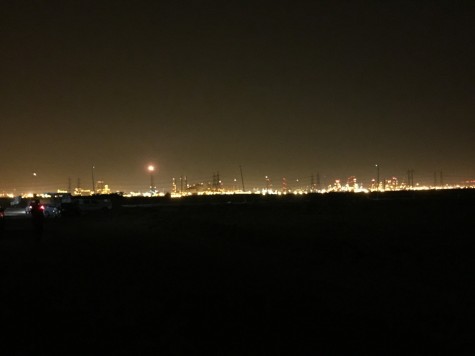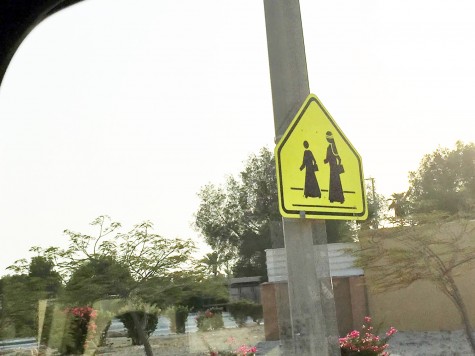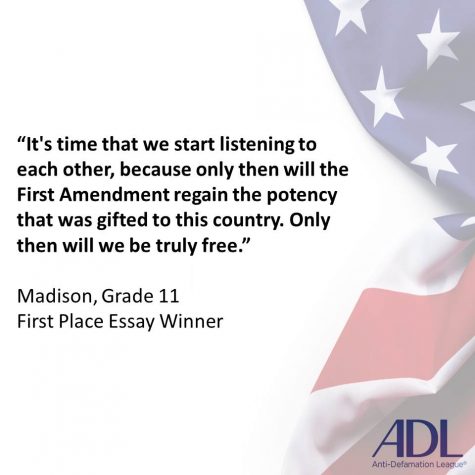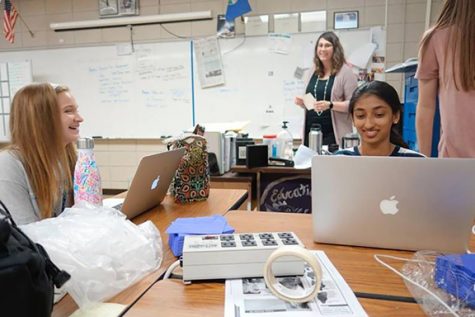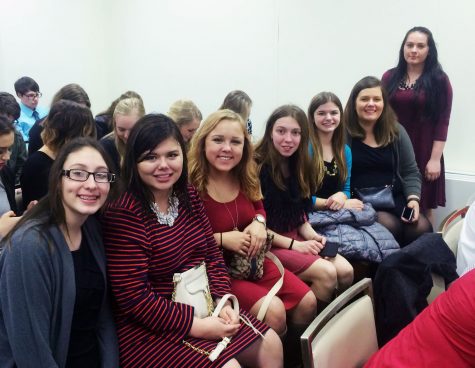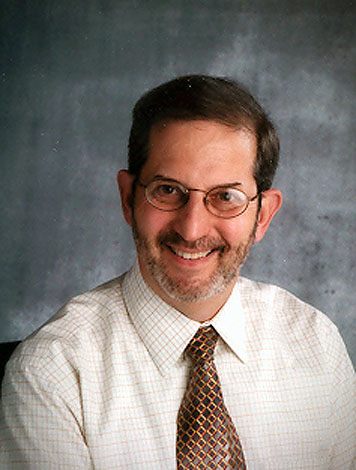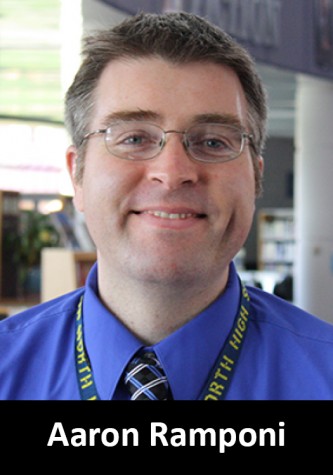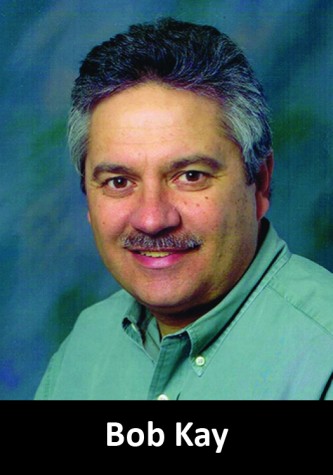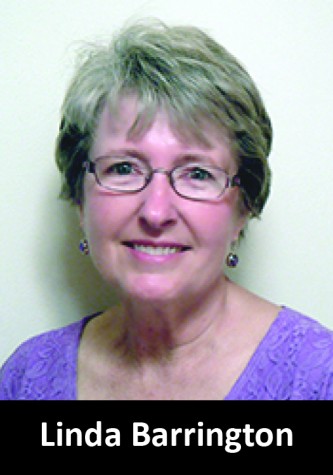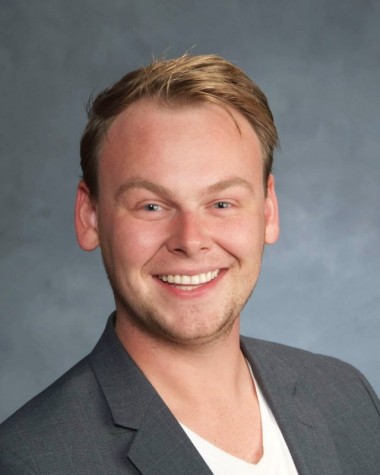Mission Possible: Journalism Advising in Saudi Arabia
By Jon Netzler
There is a small closet, actually a relatively large closet, attached to the spacious, windowed classroom where I conduct my lessons with British Literature, American Literature and Journalism students. This closet is my office.
Two months ago this storage closet was filled with dusty science books, glass beakers and flasks, scales, plastic bins, corn syrup, flour, paper funnels, Petri dishes containing sand, and a variety of junk. Now, this storage closet is inhabitable, furnished with one small desk and one large desk, one new, adjustable chair on wheels which reclines (into the brainstorming position), two wooden chairs, three softly glowing lamps, two sets of ugly, gunmetal shelves piled with stacks of essays to mark–and with one shelf devoted to applesauce, granola bars, bags of black tea, and unopened sets of plastic cutlery from Applebee’s.
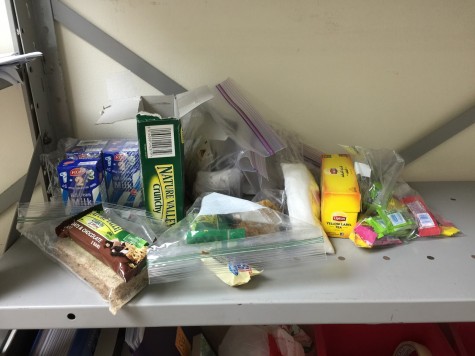
During an early orientation session, an aged but sprightly man said to me, “Twenty-odd years ago, when I was new to Saudi Arabia, my mentor gave me a piece of advice that has served me well to this day. He said, ‘Make yourself as comfortable as you can, and stay as long as you can.’”
I find that I am taking this advice to heart because I am beginning to understand its logic: with so many cultural differences challenging my notions of normalcy, I can see how it is essential to arrange as many comforts as I can if I hope to survive and eventually thrive in my new position as a high school language arts teacher at ISG Jubail in Saudi Arabia.
So, with some inventive maneuvering I have transformed a dingy science closet into a laboratory to nurture my creativity, into a refuge in which I can recharge, into a space where I can do the multifaceted work of an English teacher and journalism adviser to help my students become literate, critical thinkers who will guide future humans into the next century.
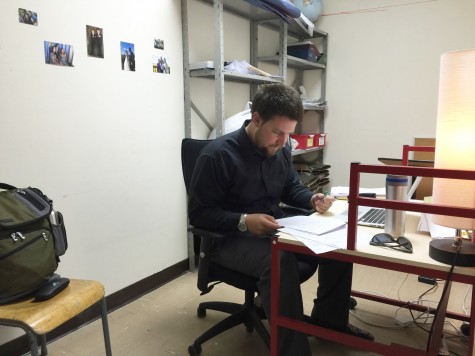
Luckily, I am fortunate to have arrived in Saudi Arabia very well prepared. Honestly, three years of KEMPA conferences (fall, winter, and summer) are what have enabled me to walk the path of a journalism teacher and adviser with any sense that I know what I’m doing.
I can’t overemphasize how fortunate I feel to be able to continue the labor of love that is journalism advising: this year I’m teaching a one-semester Journalism elective, and I’ve volunteered to advise 19 students who have signed up for Yearbook as an after-school activity.
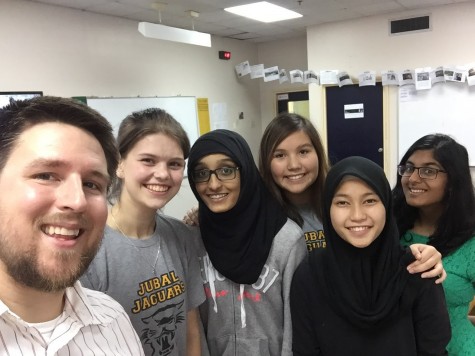
So, what is journalism advising in Saudi Arabia like? It’s similar to and different from journalism advising in Wisconsin.
Students need to be pushed to write better, to think more deeply, to think and act like ethical journalists. Most teachers and other staff members are supportive of student journalists, and some are wary of them. There are a million-and-one things to do. There are meetings with administrators. The administrators are incredibly supportive about the idea of an online publication managed by journalism students that showcases what a 21st-century school should be and that promotes a positive school culture. Of course, though, there are just some things that student journalists can’t cover.
“You can’t write about ISIS. You just can’t do it. Gay marriage–no way. Religion–don’t go there. There are cultural sensitivities we must be careful about.”
Of course. Of course. Cultural sensitivities, we journalists get it. Journalism: The Art of Propaganda. Therefore, I must ask that you kindly go back and erase the preceding sentences from your brain. We journalists must respect the boundaries necessary to preserve social order. That’s what journalism is, right?
It’s difficult. The question I keep coming back to as an adviser is, “Can we do journalism in Saudi Arabia?” I am conflicted. I keep telling myself, “Doing something is better than doing nothing,” but I often worry that I’m committing journalism mortal sins. After all, I studied creative writing at the University of Wisconsin-Madison, not journalism. How do I sleep at night? Well, sometimes I don’t.
One thing I can guarantee is that every day, you will find me working tirelessly inside my closet office, scouring drafts of journalistic writing so that I can figure out how to guide students to tackle the challenge of doing journalism the right way, the ethical way, at our school in Saudi Arabia. I invite you to judge our work for yourself, and please tell us how you think we are doing: in November 2015 my five journalism students and I launch an online publication for ISG Jubail School: isgjtoday.com. With any luck, we’ll still be around in November 2016.
Before joining the staff at ISG Jubail, in Saudi Arabia. Jon Netzler taught language arts and journalism for four years at Stoughton High School in Stoughton, Wisconsin, where the Yahara yearbook and Norse Star news magazine are KEMPA members .
Netzler teaches English 9, American Literature, British Literature and Journalism, and he advises students who produce the online publication “ISGJ Today” and students who produce the yearbook.
More photos from Saudi Arabia:
